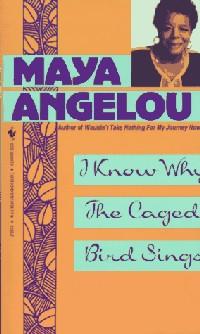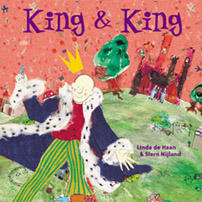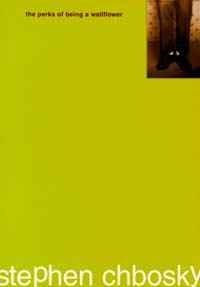 Mirroring the heated debate over gay marriage, three of the 10 most challenged books in the nation last year were cited for homosexual themes - the highest number in a decade, according to the American Library Association.
Mirroring the heated debate over gay marriage, three of the 10 most challenged books in the nation last year were cited for homosexual themes - the highest number in a decade, according to the American Library Association.The three books include a picture book titled King and King by Linda de Haan and Stern Nijland, a young adult novel titled The Perks of Being a Wallflower by Stephen Chbosky, and I Know Why the Caged Bird Sings, an autobiographical volume by poet Maya Angelou.
These books and others will be spotlighted this week as libraries, bookstores, and schools around the country celebrate the 23rd annual Banned Books Week, which begins today and runs through next Saturday.
Concern about homosexual themes in books also has sparked efforts - so far unsuccessful - in several state legislatures to eliminate funding for materials that deal with homosexuality, ALA officials said.
In addition, Rep. Walter Jones (D., N.C.) has introduced legislation requiring local school districts to create parent councils to review proposed acquisitions of materials for classrooms and libraries. Mr. Jones developed his legislation after hearing complaints about King and King.
Similarly, complaints about King and King prompted the Metropolitan Library System in Oklahoma City to move children's books containing "sensitive or controversial" material to a special collection available only to adults.
American Library Association officials said they are battling these efforts as contrary to intellectual freedom.
"It all comes down to the imposition of your views on other people. To be honest, it seems to me to be downright un-American," said Michael Gorman, head of the library association.
He said the library association believes parents are responsible for what their children read.
"But it's important that the general public understand that there are people who want to censor the reading of other people's children," he added.
The annual Banned Books Week celebration, highlighting the most challenged books of the previous year, is one way the library association attempts to fight back, officials said.
Overall, the number of book challenges reported to the ALA's Office for Intellectual Freedom last year jumped by nearly 100, from 458 in 2003 to 547 in 2004, officials said. That is less than the 762 challenges recorded in the peak year of 1995, but still a worrisome trend, they added.
 A book challenge, as defined by the library association, is a formal written complaint filed with a library or school requesting that materials be removed because of content or appropriateness. Sexual themes and offensive language are among the most common reasons cited.
A book challenge, as defined by the library association, is a formal written complaint filed with a library or school requesting that materials be removed because of content or appropriateness. Sexual themes and offensive language are among the most common reasons cited.The majority of challenges involve school libraries, but the number involving public libraries is increasing, library association officials said.
"These are just the challenges that we've heard of," Mr. Gorman added. "It's estimated that there are probably four to five times as many that we don't hear about. It's so hackneyed, but the phrase 'tip of the iceberg' comes to mind."
Except for King and King, all of the titles on the list are in the collection of the Toledo-Lucas County Public Library system.
Library Director Clyde Scoles said none of the books has been the subject of any complaints he knows about and that, in general, book complaints have been rare in Toledo
Library staff rely on parents to monitor the age-appropriateness of books their children check out, Mr. Scoles said, noting that parental or guardian signatures are required for a minor to receive a library card.
Those on the other side of the fight contend that the library association is failing to protect children from materials that are pornographic and violent.
"The ALA is an organization that pushes smutty books into K-12 schools, effectively using taxpayer money to do so," members of a Virginia-based group called People Against Bad Books in Schools, wrote in an e-mail response to a reporter's query.
"The ALA is focused on promoting their agenda in which anything goes at any age. Banned Books Week is simply one way they use to do that."
Pat Scales, a school librarian in South Carolina and author of Teaching Banned Books, said the Internet has helped fuel the growth of groups which are challenging books.
"It's become a huge Internet movement," said Ms. Scales, who has testified as an expert witness in several cases around the country involving book challenges. "On the flip side of that, because these people have been so aggressive and so active on the Internet, that has also mobilized those who feel differently."
Groups challenging homosexual themes in books have pushed their case in three states in recent months. The groups attempted to persuade lawmakers in Alabama, Louisiana, and Oklahoma to pass legislation eliminating state funding for materials that deal with homosexuality or materials that have been written by homosexuals.
 Those efforts were rejected, although the Oklahoma House passed a nonbinding resolution urging library officials to restrict children's access to books with homosexual themes, library association officials said.
Those efforts were rejected, although the Oklahoma House passed a nonbinding resolution urging library officials to restrict children's access to books with homosexual themes, library association officials said.Recently, Metropolitan Library System in Oklahoma City voted to move some books containing "sensitive or controversial" themes to a collection available only to "adults in authority.".
Mr. Jones, the GOP North Carolina congressman, said empowering parents was the goal of his legislation to require local school districts to create parental boards to review library and classroom-based materials before they are purchased for elementary schools.
"This legislation will be one avenue to help parents to take back their right to determine the appropriateness of the content their children are exposed to," Mr. Jones said.
But library officials say such legislation would enable a minority of parents to control content used by all students.
"There's not a public school out there that doesn't have a mission statement that says it serves all students," Ms. Scales said. "That means all ethnic groups, those who are gay or straight; it means everything.
"There are people who want their kids to read books about gays and lesbians. Therefore we have an obligation to have those books. We select those books the same way we select all others - based on their literary merit.
from ToledoBlade.com
No comments:
Post a Comment